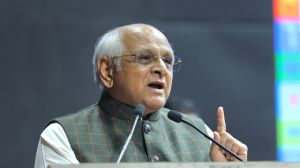Citi launches T-bill rate-linked home loan
The bank had a gross home loan book of Rs 9,000 crore, while the overall India book stood at Rs 57,000 crore as of December 2017.
 Existing customers will also be able to the new product without any refinancing costs.
Existing customers will also be able to the new product without any refinancing costs.
US lender Citi has launched India’s first market benchmark rate-linked lending product. The bank has introduced a home loan product that will be linked to the rate of treasury bills, which is used by government for its short-term borrowings.
The bank, which already has similar external benchmark-linked products in other markets like the US and Singapore, said it does not see any impact on net interest margin (NIM), a key determinant of profitability, because of the launch of the product where a borrower’s rates will be reviewed every three months.
Citi’s country business manager for global consumer banking Shinjini Kumar, said a shift to a market benchmark like the T-bill is transparent, simple and will also help with better transmission. Loans will be sold at a fixed spread above the T-bill rate which will be maintained throughout the loan tenure, she said, adding there will be quarterly readjustments for the borrower.
There will be a range of spread above the T-bill rate which the bank will follow, its head of secured lending Rohit Ranjan said, adding the average spread will be 2 percentage points. Existing customers will also be able to the new
product without any refinancing costs, he added.
The bank’s country treasurer Badrinivas NC sought to downplay concerns surrounding customers being exposed to T-bill rate volatilities, which may happen due to external events like the taper tantrum in 2013 and hinted that the rates also reflect the policy decisions at a particular point of time which get captured through the quarterly resets.
He said the bank has a diversified liability profile, including a high 60 per cent composition on the low-cost current and savings account deposits and also other retail term deposits, which will make it possible for it to offer such a product. The bank feels the RBI will be on a long pause and may go for a hike in rates only if there is a surge in inflation, he said.
The bank had a gross home loan book of Rs 9,000 crore, while the overall India book stood at Rs 57,000 crore as of December 2017. Even as rivals struggle with dud assets, its NPAs on the mortgage lending is a healthy 0.05 per cent,
the bank said.





- 01
- 02
- 03
- 04
- 05


























